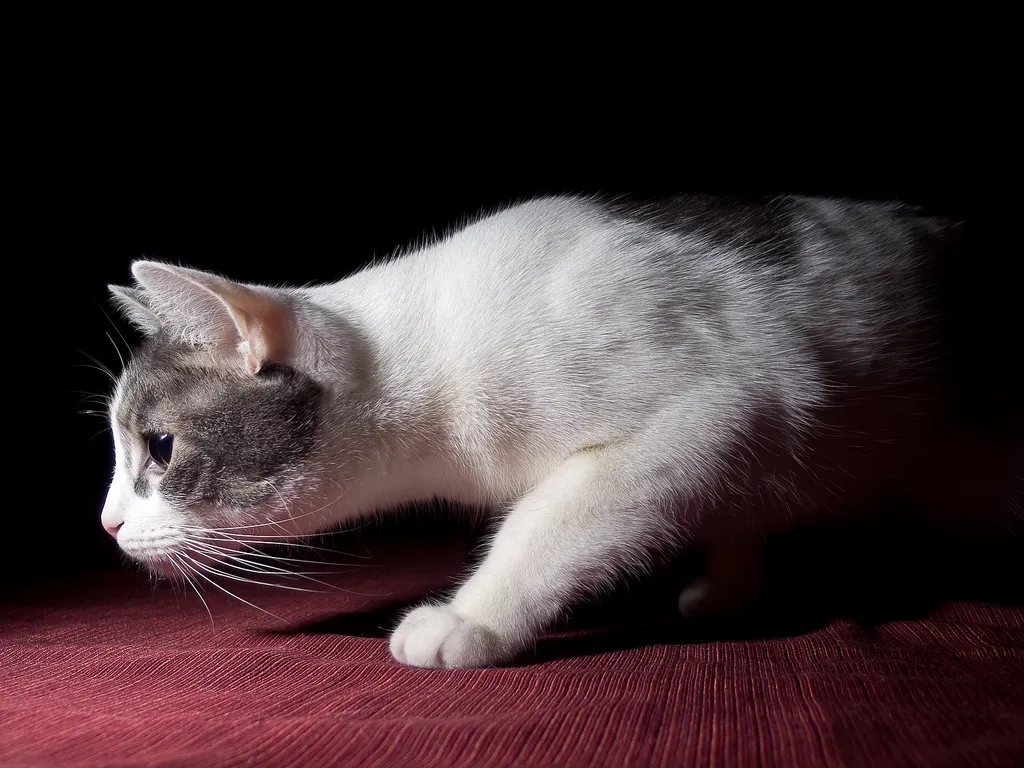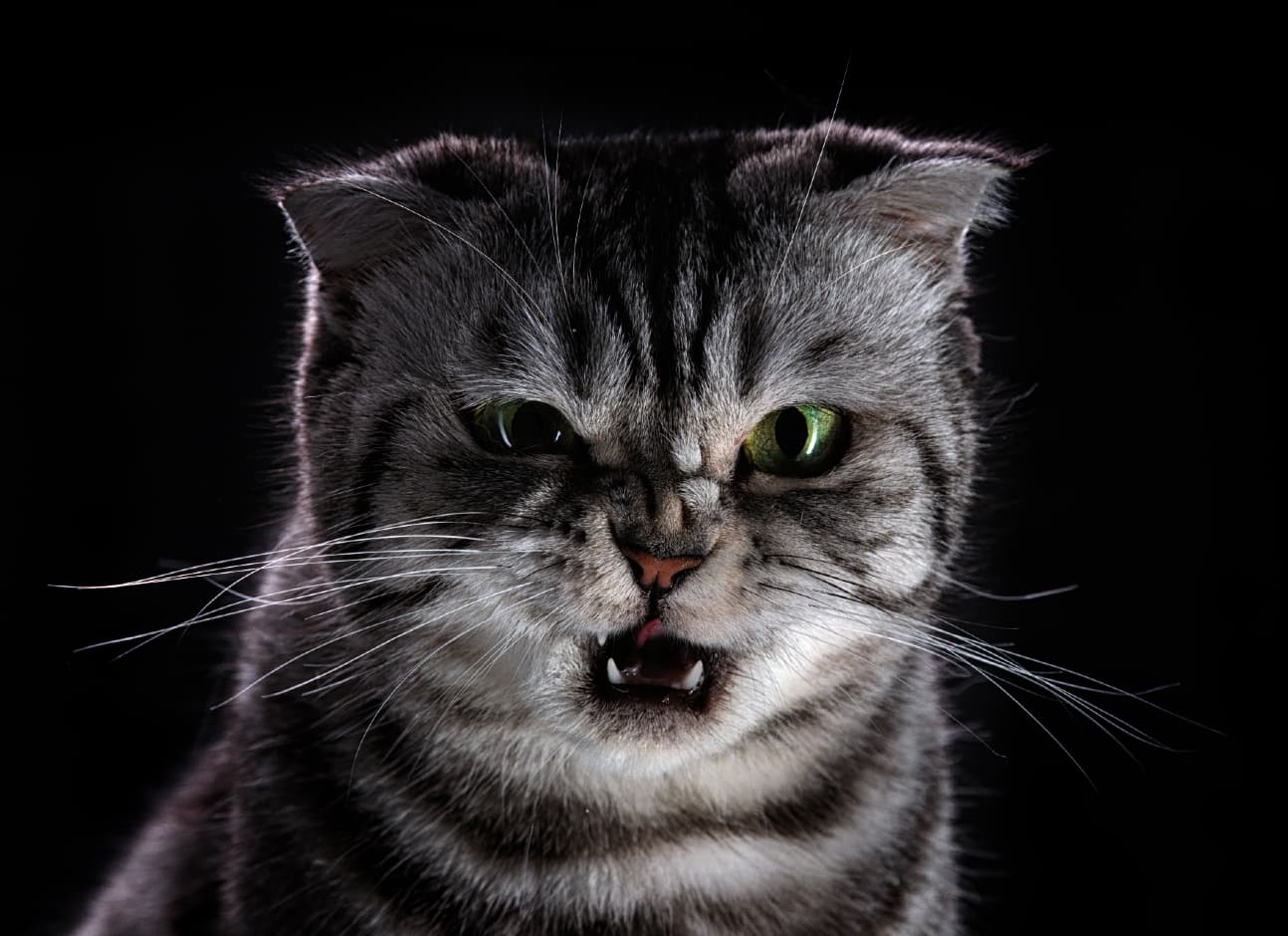Reviewed by Dr. Sarah Yosry
Updated on 11/12/2024
Reading time 4 min.
Overview
Severity: Low
Life stage: All
Cats are known for being independent and nocturnal creatures, and their behavior can often be puzzling for pet owners. One common issue cat owners face is their cat’s aggression at night. Many cats become more active and aggressive at night, leading to various problems for their owners. This article will explore the reasons behind this behavior and discuss ways to deal with it.
Understanding Cat Behavior
Before we delve into the causes of a cat’s nighttime aggression, it is essential to understand the behavior of cats. Cats are crepuscular animals, which means they are most active during dawn and dusk. This behavior is attributed to their wild ancestry when they would hunt prey at these times. However, domesticated cats have adapted to their owners’ schedules and may be active during the day.
Cats are also territorial animals and tend to mark their territory using their scent. They are creatures of habit and prefer routine and predictability in their environment. Any changes in their routine or environment can cause stress and anxiety, manifesting in aggressive behavior.
Any changes in their routine or environment can cause stress and anxiety, manifesting in aggressive behavior.
Causes of Nighttime Aggression
Playtime
One of the most common reasons why cats get aggressive at night is because they want to play. Cats are energetic animals and need physical and mental stimulation to stay healthy. If they do not get enough playtime during the day, they may become restless and seek playtime at night. Playing with your cat before bedtime can tire them out and help reduce their aggression.

Hunger
Another reason why cats get aggressive at night is that they are hungry. Cats are intuitive to hunt and may become agitated when they cannot find food. If your cat’s feeding schedule does not align with its instincts, it may become aggressive. Feeding your cat just before bedtime may help reduce their aggression.
Health Issues
Cats may become aggressive at night if they suffer from health issues. Pain, discomfort, or illness can cause anxiety and stress, manifesting in aggressive behavior. If you notice any changes in your cat’s behavior, you must take them to a veterinarian for a checkup.
Environmental Factors
Environmental factors such as loud noises, bright lights, or unfamiliar scents can cause anxiety and stress in cats. If your cat’s environment is not conducive to their habits, they may become aggressive. Creating a comfortable and predictable environment for your cat can help reduce their aggression.
Lack of Attention
Cats crave attention and affection from their owners. They may seek it at night if they do not get enough attention during the day. If your cat is meowing or scratching at your door at night, it may be a sign that they want attention. Spending quality time with your cat during the day can help reduce their aggression at night.
Conclusion
Nighttime aggression in cats can be frustrating and puzzling for cat owners. However, understanding the reasons behind this behavior can help you manage it effectively. Providing your cat with enough playtime, feeding them just before bedtime, and creating a comfortable environment can help reduce their aggression.
If you suspect your cat’s aggression is due to a medical issue, consult a veterinarian for proper diagnosis and treatment.
If you’re in Dubai and looking for a trusted veterinarian to help with your cat’s aggression or any other health issues, consider ModernVet Clinic. Their experienced veterinarians provide high-quality care and personalized attention to each pet. Contact ModernVet clinic today to schedule an appointment and ensure your furry friend is healthy and happy.
Concerned about your cat feeling lonely? Visit our website to learn more about feline companionship and how our veterinary services can support your cat’s emotional and physical well-being.
Ensure your pets receive the best possible care by visiting our Animal Hospital. Check out our website to learn about our state-of-the-art facilities and services, and how we can help keep your animal companions healthy and happy.
Share this, choose your platform!
Writen by
Dr. Sarah Yosry
DVM
A product of a rich Australian/Egyptian heritage, Dr. Sarah Yosry stands as a testament to the union of diverse cultures and a shared love for animals…


